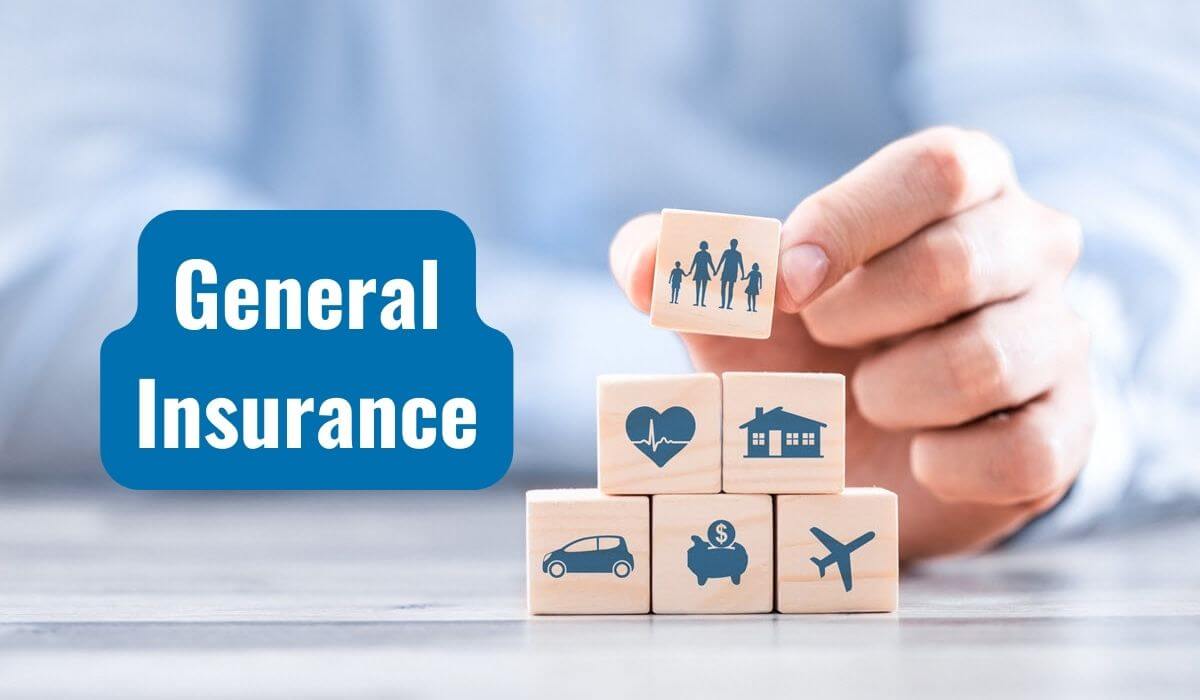**What to Look For After a Car Accident**
If you’re reading this, you’ve likely just experienced a car accident. First of all, we’re glad you’re safe and well. We know how shaken you might be feeling, that could be physically or even emotionally. But now, it’s important to be prepared and know what to look out for in the aftermath of your accident. Doing this could potentially save you from further complications and ensure you get the help you need.
**Get to Safety**
If you’re able to, the first step is to pull over to a safe location. If you stay on the road, you risk getting hit again, so it’s important to get out of harm’s way as soon as possible. Once you’re in a safe spot, put your car in park, turn on your hazard lights, and get out of the car.
Check yourself for injuries. Even if you don’t feel any pain, it’s important to check yourself for any cuts, bruises, or other injuries. If you find any injuries, apply pressure to stop the bleeding and call 911.
Once you’re sure you’re okay, check on your passengers. Make sure they are not injured and call for medical help if necessary.
If you’re involved in a car accident, it’s important to stay calm and collected. This can be difficult to do, but the calmer you are, the more likely you are to make good decisions following the accident.
After a Car Accident: What to Keep an Eye Out For
After a car accident, it’s easy to feel overwhelmed and disoriented. But it’s important to stay calm and take stock of the situation. Here are a few things you should do right after a car accident:
Exchange Information
First, exchange information with the other driver involved. This includes your name, address, phone number, insurance information, and license plate number. It’s also a good idea to take pictures of the damage to both vehicles and get the names and contact information of any witnesses.
If the other driver is uncooperative or aggressive, don’t hesitate to call the police. They can help you exchange information and make sure that everyone involved is safe.
Here’s a more detailed rundown of the information you should exchange with the other driver:
- Name: Get the other driver’s full name, as it appears on their driver’s license.
- Address: Get the other driver’s current address, including street address, city, state, and zip code.
- Phone number: Get the other driver’s phone number, including area code.
- Insurance information: Get the other driver’s insurance company name, policy number, and expiration date.
- License plate number: Get the other driver’s license plate number, including the state in which the vehicle is registered.
It’s also a good idea to take pictures of the damage to both vehicles and get the names and contact information of any witnesses. This information will be helpful if you need to file an insurance claim or take legal action.
What to Look for After a Car Accident
Car accidents can be shocking and disorienting experiences. In the aftermath of a crash, it’s crucial to assess the situation promptly and document the details to protect your rights. Here’s a detailed guide on what to do immediately after a car accident.
**Document the Scene**
Documenting the scene of an accident is essential for insurance claims and potential legal proceedings. Take photos of the damage to both vehicles involved, including interior and exterior shots. Capture the accident location, street signs, and any visible traffic signals. If there are any injuries, photograph them as well. These photos will serve as valuable evidence of the accident’s severity and circumstances.
In addition to photos, sketch a diagram of the accident scene. This will help you visualize the positions of the vehicles, the direction they were traveling, and any other relevant details. Note down the names and contact information of witnesses, as their statements can corroborate your account of the accident.
Don’t forget to document any conversations you have with other drivers, passengers, or witnesses. Jot down what they say and the time of the conversation. These notes can be crucial for reconstructing the events leading up to the accident. By thoroughly documenting the scene, you’re creating a strong foundation for any future claims or disputes.
What to Look for After a Car Accident
Getting into a car accident is never a pleasant experience. It can be downright terrifying, especially if you or someone else is injured. But even if everyone involved seems to be okay, there are certain things you should do to protect yourself in the aftermath of a crash.
Here are a few things to look for after a car accident:
**Call the Police**
In most cases, you should call the police after a car accident. This is especially important if there are any injuries or significant damage to the vehicles involved. The police will be able to create a report of the accident, which can be helpful for insurance purposes. They can also help to direct traffic and clear the scene of the accident.
**Get Medical Attention**
Even if you don’t feel like you’re injured, it’s important to get medical attention after a car accident. Some injuries, such as whiplash, may not be immediately apparent. Getting checked out by a doctor can help to ensure that you don’t have any serious injuries that need to be treated.
**Document the Scene**
If possible, take pictures of the accident scene. This will help you to remember what happened and can be helpful for insurance purposes. Be sure to get pictures of the damage to the vehicles, the surrounding area, and any injuries that you or other people involved in the accident may have sustained.
**Exchange Information**
Be sure to exchange insurance information with the other drivers involved in the accident. You should also get their contact information, including their names, addresses, and phone numbers. This information will be helpful for insurance purposes and for filing a police report.
**Don’t Admit Fault**
It’s important to avoid admitting fault for the accident, even if you believe you were at fault. Anything you say can be used against you later on by the other driver’s insurance company. Instead, simply state the facts of the accident and let the police and insurance companies determine who was at fault.
**Don’t Sign Anything**
Don’t sign anything at the scene of the accident, even if the other driver or their insurance company asks you to. You should wait until you have had a chance to speak with your own insurance company and an attorney, if necessary.
**Report the Accident to Your Insurance Company**
As soon as possible after the accident, you should report it to your insurance company. They will be able to help you file a claim and get your car repaired or replaced.
**Get a Copy of the Police Report**
Once the police have completed their investigation, you should request a copy of the police report. This report will contain important information about the accident, including the names of the drivers involved, the time and location of the accident, and any injuries or damage that was reported.
What to Look for After a Car Accident
Being involved in a car accident can be a traumatic experience. The adrenaline rush can mask potential injuries, making it crucial to be aware of what to look for in the aftermath of a crash. This guide provides comprehensive information to help you assess your health and well-being after a collision.
Seek Medical Attention
Even if you don’t feel injured, it’s imperative to seek medical attention promptly. Some injuries, like concussions or internal bleeding, may not manifest immediately. A doctor can thoroughly examine you, rule out any hidden problems, and provide appropriate treatment. Don’t take chances with your health.
Document Everything
Documenting the accident scene thoroughly will help protect your interests. Take pictures of the damage to your vehicle, the other vehicles involved, and the surrounding area. Get the names, contact information, and insurance details of the other drivers, witnesses, and police officers. Keep a written record of what happened, including the time, location, and any injuries sustained.
Contact Your Insurance Company
Notify your insurance company as soon as possible after the accident. They will guide you through the claims process and provide assistance in getting your vehicle repaired or replaced. Be honest and accurate when describing the events, and cooperate with the insurance adjuster to ensure a fair settlement.
Consult an Attorney (If Necessary)
If you suffer significant injuries or have complex legal issues related to the accident, consider consulting an attorney. A lawyer can help protect your rights, negotiate with insurance companies, and ensure you receive fair compensation for your damages.
Watch for Delayed Symptoms
Some injuries, such as whiplash, may not show up right away. Be vigilant for symptoms like neck pain, headaches, dizziness, or nausea in the days and weeks following the accident. If you experience any unusual symptoms, don’t hesitate to seek medical attention again. It’s better to be safe than sorry.
What to Look for After a Car Accident
After a car accident, it’s easy to feel overwhelmed and confused. But it’s important to stay calm and collected so that you can take the necessary steps to protect yourself and your rights. Here are a few things you should do after a car accident:
**Document the Scene**
The police will likely create an accident report, but it’s always a good idea to document the scene yourself. Take pictures of the damage to your car, the other car, and the surrounding area. If possible, get the names and contact information of any witnesses.
**Seek Medical Attention**
Even if you don’t feel injured, it’s important to seek medical attention after a car accident. Some injuries, such as whiplash, may not be immediately apparent. A doctor can check for any hidden injuries and provide you with the treatment you need.
**Contact Your Insurance Company**
Inform your insurance company about the accident as soon as possible. They will be able to help you file a claim and get your car repaired or replaced. If you were not at fault for the accident, you may be entitled to compensation from the other driver’s insurance company.
**Hire an Attorney**
If you were seriously injured in the accident or if you are having trouble getting your insurance company to pay for your damages, you should consider hiring an attorney. An attorney can help you protect your rights and get you the compensation you deserve.
**Don’t Admit Fault**
It’s important to never admit fault for an accident, even if you believe you were responsible. Anything you say can be used against you later on. If the other driver is trying to blame you for the accident, simply state your side of the story and leave it to the insurance companies to sort out who is at fault.
**What to Look for After a Car Accident**
Car accidents can be more than just a fender bender—they can be traumatic experiences that leave you feeling shaken, confused, and overwhelmed. Beyond the initial shock, taking the time to gather information and assess the situation is crucial for your well-being and ensuring you protect your rights. Here are some essential steps you should take after a car accident:
**Gather Evidence**
Documenting the details of the accident is of paramount importance. Start by taking pictures of the damage to your vehicle, the other vehicles involved, and the surrounding area. Record any visible injuries or other physical evidence, such as skid marks or debris. If possible, speak to witnesses and obtain their contact information. Be sure to gather any medical records, police reports, or insurance documents related to the accident.
**Check for Injuries**
Even if you don’t feel injured initially, it’s important to seek medical attention. Some injuries, like whiplash or concussions, may take hours or even days to manifest. A doctor can examine you, diagnose any injuries, and provide you with appropriate treatment.
**Exchange Information**
It’s crucial to exchange information with the other drivers involved in the accident. This includes your names, addresses, phone numbers, insurance companies, and policy numbers. Avoid getting into arguments or placing blame; focus on gathering the necessary information to facilitate the insurance process.
**Report the Accident**
In most jurisdictions, you’re required by law to report car accidents to the authorities. Contact the police and file a report as soon as possible. The police will investigate the accident, gather evidence, and provide you with a copy of the accident report, which will serve as valuable documentation for insurance purposes.
**Contact Your Insurance Company**
Inform your insurance company about the accident promptly. They will guide you through the claims process, help you file a claim, and assist you in recovering compensation for damages and injuries. It’s essential to provide your insurance company with all the evidence you’ve gathered, including photographs, medical records, and the police report.
**Seek Legal Advice if Necessary**
If the accident resulted in severe injuries or significant property damage, or if you have any disputes with the other driver’s insurance company, consider seeking legal advice. An experienced attorney can protect your rights, negotiate with insurance companies, and help you obtain fair compensation for your losses.
What to Look for After a Car Accident
The aftermath of a car accident can be a blur of confusion and chaos. But amidst the wreckage, it’s crucial to stay composed and gather as much information as possible to protect your safety, legal rights, and well-being. Let’s delve into some key things you should do after a car accident.
Protect Your Legal Rights
In the wake of a car accident, seeking legal counsel may be a wise decision. An experienced attorney can ensure your rights are protected, guide you through the legal process, and help you recover fair compensation for any damages you’ve incurred.
What to Look For
1. Check for Injuries
Your well-being is paramount. Check yourself and any passengers for injuries. If you experience any pain or discomfort, seek medical attention immediately.
2. Document the Scene
Take pictures of the accident scene, including damage to vehicles, surrounding conditions, and any visible injuries. This documentation will serve as valuable evidence.
3. Exchange Information
Obtain the names, contact information, insurance details, and license plate numbers of all drivers involved. Gather witness statements if possible.
4. Report the Accident
Inform the authorities about the accident, even if it appears minor. A police report will provide an official record of the incident and may be crucial in determining fault.
5. Seek Medical Attention
Even if you don’t feel injured initially, some injuries may not manifest immediately. Seek medical evaluation to rule out any underlying health issues.
6. Notify Your Insurance Company
Inform your insurance company about the accident as soon as possible. Provide them with details and documentation of the incident.
7. Be Mindful of What You Say
In the aftermath of an accident, it’s natural to feel overwhelmed and may inadvertently say something that can jeopardize your legal rights. Avoid admitting fault or making statements that could be interpreted against you.
8. Preserve Evidence
Keep all documentation, medical records, and any physical evidence related to the accident. These materials will strengthen your case and help you recover fair compensation.




Leave a Reply